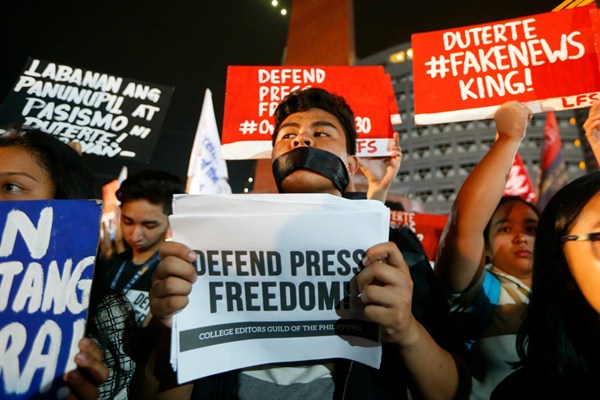Editor’s Note: This article is part of an ongoing series about press freedom and safety in various countries around the world.
On Jan. 15, the Securities and Exchange Commission in the Philippines revoked the media license for Rappler, an online, independent media outlet that had gained prominence for its critical reporting and investigative work. The decision has provoked a backlash from the media in the Philippines, which has been under increasing assault from the administration of President Rodrigo Duterte, the populist leader who was elected in 2016. In an email interview, Daniel Bastard, the director of Reporters Without Borders’ Asia-Pacific desk, discusses the Rappler case and the broader challenges to press freedom and safety under Duterte.
WPR: How have rules limiting foreign ownership and other aspects of the legal framework pertaining to media been used to curb press freedom?

